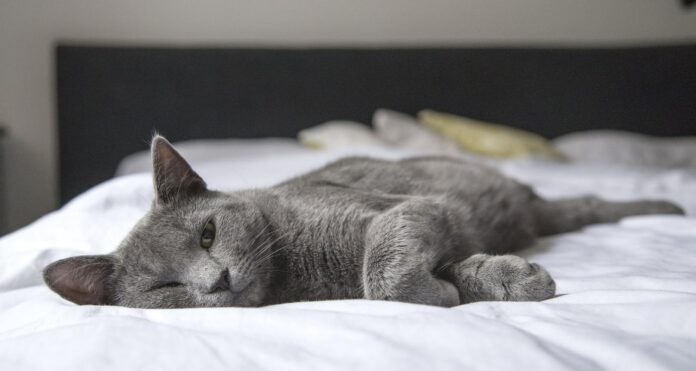Sleep apnea is a lot more common than one might think. Many people have this disorder, whether they know it or not. When it comes to dealing with sleep apnea there are some things that you can do to make living with it less of an inconvenience. Continue reading to learn a few things that can make your life with sleep apnea more enjoyable.
Get a checkup regularly and act upon your doctor’s suggestions. Besides excess weight, you could be suffering from health issues such as heart disease and hypertension, which can greatly increase your chance of suffering from sleep apnea. Even problems with blood sugar can make sleeping a miserable experience for apnea sufferers.
Exercise your neck and throat. Sleep apnea is caused by your throat becoming obstructed as you sleep. By strengthening the muscles in your neck, throat, and jaw, you can help your muscles withstand the pressure. Spend a few minutes every day performing exercises designed for the jaw and neck area.
Avoid drinking alcohol. Getting buzzed or drunk causes your airways to relax too much. If someone goes to sleep in a drunk state, you can hear the effects from their deep snoring. In someone who already suffers from sleep apnea, it can be very dangerous. Avoid alcoholic drinks to sleep safer.
If you suffer from sleep apnea, you should treat any sinus or allergy problems you may have. You already are having difficulty breathing at night due to your sleep condition. You don’t want to have anything else that hinders your breathing while you sleep. Maintaining free nasal passages will ensure greater odds of sleeping getting a great night’s sleep.
Doctors often recommend that sleep apnea patients consider treatment with a CPAP – Continuous Positive Airway Protection – mask and machine. The machine sends air through a hose to a mask covering your nose. The purpose is to help keep your airway open so you are breathing normally as you sleep. While the machine may initially seem a little foreign and uncomfortable, a great many patients adapt quickly and find they are getting much more restful sleep as a result.
Avoid any type of drugs or alcohol if you are experiencing any type of sleep apnea. Drugs and alcohol will slow down your respiratory system, and that is known to be one of the causes of sleep apnea. If you are struggling with this issue, try to get some professional help to overcome these addictions.
The major signs of sleep apnea are loud snoring, choking or gasping while sleeping, significant lapses in breathing, and daytime tiredness. Other common symptoms are morning headaches, restless sleep, irritability, waking with a sore throat or dry mouth and even having more frequent runs to the bathroom at night. If you exhibit these, then you should see your doctor promptly.
Getting a CPAP machine is no cause for concern or embarrassment. People will feel better about knowing why you are using it, and they will be supportive. Undergoing CPAP therapy is an important step in preserving your overall health; don’t let inappropriate social pressure prevent you from getting the treatment you need.
If you suffer from sleep apnea, change your sleeping position to reduce the number of sleep apnea events. Sleep on your side instead of on your back to lessen the likelihood that the soft tissue in the back of the throat will collapse and block your air passages. Prop a pillow behind your back to help you stay on your side as you sleep.
Be proactive in finding treatment. If you don’t consult a physician about what you can do, your condition will worsen and may even threaten your life. A visit to your doctor is essential to prevent your sleep apnea symptoms from ruining your nightly sleep.
If you suffer from sleep apnea, it’s important that you stay away from sleeping pills, cough syrup, or any other medication that may make you drowsy before going to sleep. These medications over-relax the throat muscles during sleep, even causing them to “collapse”, making it hard for enough air to come through.
Lose weight. If you find yourself having difficulty sleeping, take the time to evaluate your weight. If you are obese, that is likely a major factor in your sleep apnea. Start on a diet and exercise regime right away so that you can slim down and sleep more comfortably every night.
Check with your doctor about any medications that you are taking that may be causing your sleep apnea symptoms. Some prescription medications, such as muscle relaxers, may, in fact, promote the collapse of the soft tissue in the back of the throat which can contribute to the symptoms of sleep apnea.
Shed the pounds that have been bugging you. Those same pounds that you cringe at when you look in the mirror may also be causing your sleep apnea. In fact, there is a rule of thumb out there that for every 10% of the weight you lose, your sleep apnea will improve by 30%.
Avoid sleeping pills and cold medicines if you suffer with sleep apnea. Taking anything that makes you drowsy will also relax the muscles of the airway passage and this can cause blockages and interruptions. Try getting into a solid routine that will prepare your mind and body for sleep instead.
Surgery may be your answer. If you have tried the at-home treatments with no success, surgery may be required to cure your sleep apnea. If your apnea is caused by severe misalignment of your jaw, you may require surgery to correct your alignment, thus enlarging your airway and curing the sleep apnea.
As you can see, there are options when it comes to dealing with sleep apnea. This condition can have a negative impact on your life, but there are some things you can do yo make living with it a little easier. Use what you learned here and sleep better with sleep apnea.



